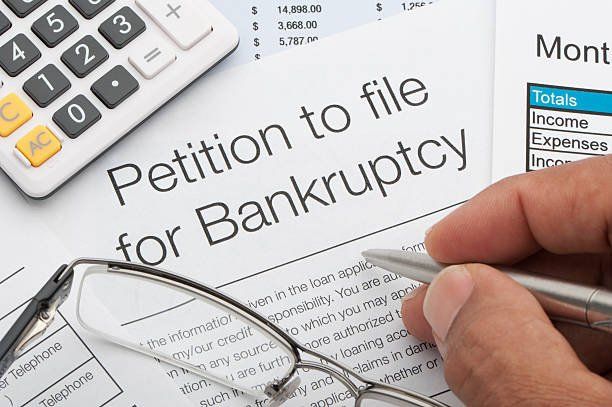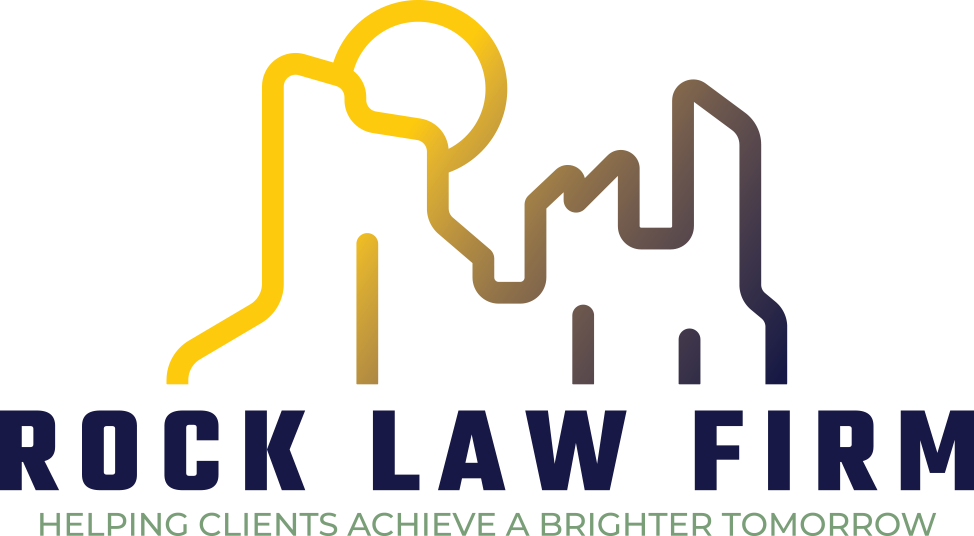
Chapter 7 and Chapter 13 Bankruptcy: Which is Right for You?
Rock Law Firm
When you're drowning in debt and facing repossession, garnishment, or losing your home, bankruptcy may seem like your only option. If you file for bankruptcy, you can get rid of your unsecured debts, like credit card bills or medical bills, and start over with your money. That said, if you're thinking about filing for bankruptcy to get out of debt, it's critical to understand the differences between Chapter 7 and Chapter 13 filings.
There are two ways to file for bankruptcy, both achieve similar goals by removing dischargeable debts and providing you with a fresh financial start. They differ, however, in terms of debt relief benefits, eligibility requirements, and how they achieve those goals.
Here's what you need to know about both types of bankruptcy so you can make an informed decision about filing for bankruptcy.
Filing for Chapter 7 Bankruptcy
Assume you file for Chapter 7 bankruptcy, also known as liquidation bankruptcy. In that case, you or your bankruptcy trustee will sell nonexempt property in order to pay off as much of your debt as possible. This prevents the proceeds from being used to repay other creditors who have made loans against collateralized assets such as houses or cars (these types of loans fall under secured status).
The remainder of your debt will be discharged by the bankruptcy courts. However, if the proceeds from the sale of all of your nonexempt property are insufficient to cover your debts, any remaining debt will remain on your credit report for ten years after filing.
If the nonexempt property is sold at auction or through a bidding process, the proceeds are used to settle creditors' claims. Any remaining balance that is not paid by selling the nonexempt property is discharged by the bankruptcy court. However, you can file a bankruptcy petition to prevent creditors from taking legal action against your assets.
Filing for Chapter 13 Bankruptcy
When you file for Chapter 13, also called reorganization bankruptcy, the court doesn't discharge your debts. Instead, if the court approves your petition, you'll be required to pay back what you owe under a repayment plan that's usually three to five years long.
A detailed list of your property and income must be submitted to the court as part of a Chapter 13 filing. Assume that one of the items on this list is in dispute and cannot be resolved through negotiation between you and the creditors involved in your case (or their experienced bankruptcy lawyer). In that case, the matter will have to be resolved through litigation.
Which One Is the Better Option Between the Two?
There’s no clear-cut answer to this question. It all depends on your specific situation and your goals for filing for bankruptcy. However, each has different requirements and can offer other benefits.
The first step is to ask yourself some questions about your financial situation:
Are there any assets I could sell?
Am I behind on my mortgage payments?
Is the balance on my credit cards high enough to qualify as "unsecured" debt under Chapter 7?
The Difference Between Secured Debt and Unsecured Debt
Filing for bankruptcy is a major step. When deciding whether to file for Chapter 7 or Chapter 13 bankruptcy, it's important to understand the distinction between secured and unsecured debt.
Secured debts, such as your mortgage and car payments, are those in which a creditor has a security interest. A security interest is a creditor's right to seize your property if you fail to pay your debt. When you pay off debts with collateral, the creditor gets to keep the collateral until the debt is paid off.
Unsecured debts are those that do not have any collateral, such as credit card bills, personal loans, and medical bills, which means that unsecured creditors cannot take anything from anyone who misses a payment to recoup their losses. In
A Means Test Can Help You Decide
To determine whether you should file for Chapter 7 or Chapter 13 bankruptcy, you must first complete the means test. This test compares your monthly income to the average income for a person of equal size living in your state (the number of people in a household).
If your monthly income is lower than the national average, you may be eligible for Chapter 7 bankruptcy. If not, you'll need to think about other options, such as debt settlement or a consumer proposal, before filing for either chapter.
To calculate your monthly net income, add up all sources of cash flow, such as:
Wages from employment
investment interest
Rents received from real estate properties
Business profits (after expenses)
After totaling your income, deduct any federally permitted deductions, such as taxes paid and health insurance premiums paid on behalf of yourself or another family member living in the same household.
Other Options to Consider Before Filing for Bankruptcy
There are some options to consider before filing for bankruptcy. You could start by exploring mortgage options to lower your monthly payments and make it easier to repay your mortgage.
If you have high credit card debt, you could negotiate with your credit card companies to reduce or lower your interest rates. Credit counselors are experts in debt management and can help you create a plan to repay your debt.
However, these options aren’t guaranteed and might not work. That's why you need a bankruptcy attorney on your side.
Contact Rock Law Bankruptcy Attorneys to Legally Reset Your Finances.
Bankruptcy is frequently regarded as the final option for people who are unable to repay their debts. However, a Rock Law Firm bankruptcy lawyer can help you navigate this complex process and get out of it sooner.
Our legal team can advise you on whether filing for bankruptcy is the best option for you and can also assist you in preparing and filing the necessary documents for free. We will assist you in understanding the process, identifying potential pitfalls, and developing a strategy to achieve your objectives with the least amount of stress and expense. Call us today at (480) 613-9690 so we can assist you in determining which option is best for your financial situation.
